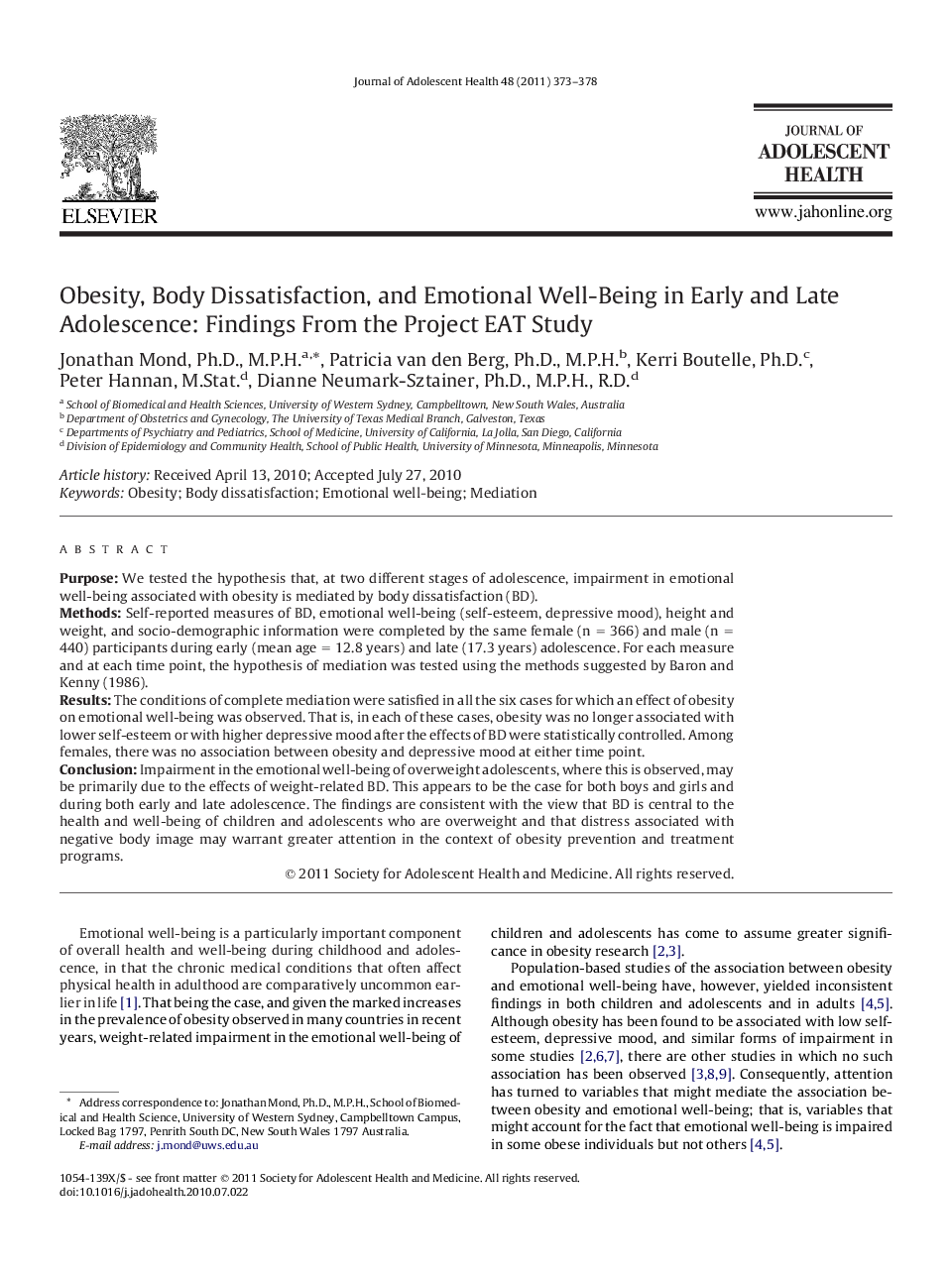| Article ID | Journal | Published Year | Pages | File Type |
|---|---|---|---|---|
| 1080075 | Journal of Adolescent Health | 2011 | 6 Pages |
PurposeWe tested the hypothesis that, at two different stages of adolescence, impairment in emotional well-being associated with obesity is mediated by body dissatisfaction (BD).MethodsSelf-reported measures of BD, emotional well-being (self-esteem, depressive mood), height and weight, and socio-demographic information were completed by the same female (n = 366) and male (n = 440) participants during early (mean age = 12.8 years) and late (17.3 years) adolescence. For each measure and at each time point, the hypothesis of mediation was tested using the methods suggested by Baron and Kenny (1986).ResultsThe conditions of complete mediation were satisfied in all the six cases for which an effect of obesity on emotional well-being was observed. That is, in each of these cases, obesity was no longer associated with lower self-esteem or with higher depressive mood after the effects of BD were statistically controlled. Among females, there was no association between obesity and depressive mood at either time point.ConclusionImpairment in the emotional well-being of overweight adolescents, where this is observed, may be primarily due to the effects of weight-related BD. This appears to be the case for both boys and girls and during both early and late adolescence. The findings are consistent with the view that BD is central to the health and well-being of children and adolescents who are overweight and that distress associated with negative body image may warrant greater attention in the context of obesity prevention and treatment programs.
